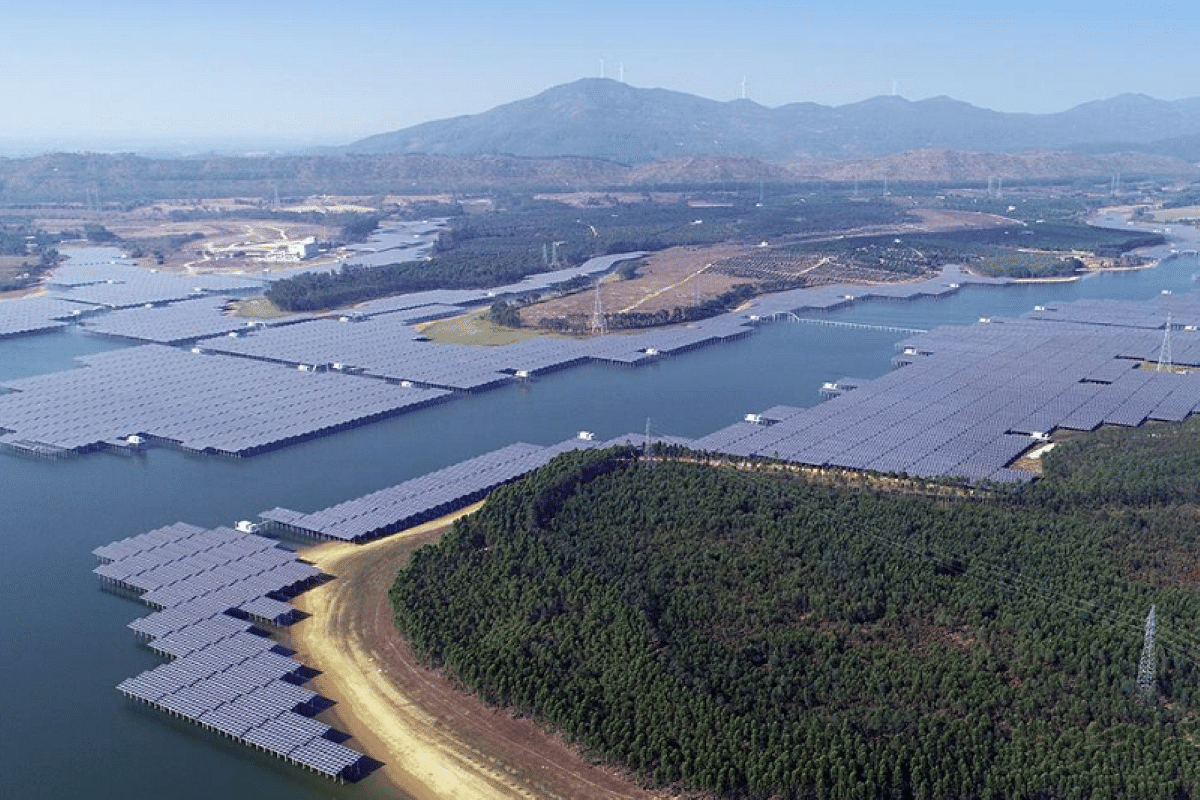News Brief
Second Tranche Of PLI Scheme Unveiled Today For Manufacturing Of Solar PV Modules To Help Save Rs 1.4-Lakh Crore In Forex Annually

Floating Solar PV Plant
Union Power and New & Renewable Energy Minister R K Singh said that the second tranche of the production linked incentive (PLI) scheme on high efficiency solar photovoltaic (PV) module manufacturing unveiled today can potentially help India save around Rs 1.4-lakh crore foreign exchange on an annual basis.
The Cabinet today (Sep 21) approved the implementation of the second tranche of PLI scheme with an outlay of Rs 19,500 crore to incentivise the domestic manufacturing of Solar PV modules.
“This [PLI] will lead to around Rs 1.40-lakh crore saving because of domestic manufacturing. And it will also result in a huge quantity of inflows on account of exports,” Singh informed media during an event.
The first tranche of PLI for solar for Rs 4,500 crore was approved last year and the bids were awarded in November-December 2021.
In the first tranche, MNRE received close to 50 Gw of bids against a PLI sanction of Rs 4,500 crore and RfP of 10 Gw. It received bids from firms— Coal India, L&T, Vikram Solar, Megha Engineering and several new companies. Reliance New Energy Solar Ltd, Adani Infrastructure and Shirdi Sai were picked for incentives.
“A total integrated capacity of 8.7 gigawatt (GW) was awarded under the first tranche. Integrated capacity means across the solar value chain from polysilicon to wafers to cells to modules. The bids received in that auction (first PLI) were for about Rs 24,000 crore, so the balance Rs 19,500 crore, which we requested. It was announced in the budget. The Finance Minister said that it is for high efficiency modules with particular emphasis on fully-integrated capacity,” Ministry of New & Renewable Energy (MNRE) Secretary Indu Shekhar Chaturvedi told media during an interaction.
While 12,000 crore will be earmarked for fully integrated manufacturing capacity (polysilicon to wafers to cells to modules), Rs 4,500 crore will be set aside for three-stage integration(wafers to cells to modules) and Rs 3,000 crore is for integration across cells and modules, the secretary added.
Support Swarajya's 50 Ground Reports Project & Sponsor A Story
Every general election Swarajya does a 50 ground reports project.
Aimed only at serious readers and those who appreciate the nuances of political undercurrents, the project provides a sense of India's electoral landscape. As you know, these reports are produced after considerable investment of travel, time and effort on the ground.
This time too we've kicked off the project in style and have covered over 30 constituencies already. If you're someone who appreciates such work and have enjoyed our coverage please consider sponsoring a ground report for just Rs 2999 to Rs 19,999 - it goes a long way in helping us produce more quality reportage.
You can also back this project by becoming a subscriber for as little as Rs 999 - so do click on this links and choose a plan that suits you and back us.
Click below to contribute.
Latest